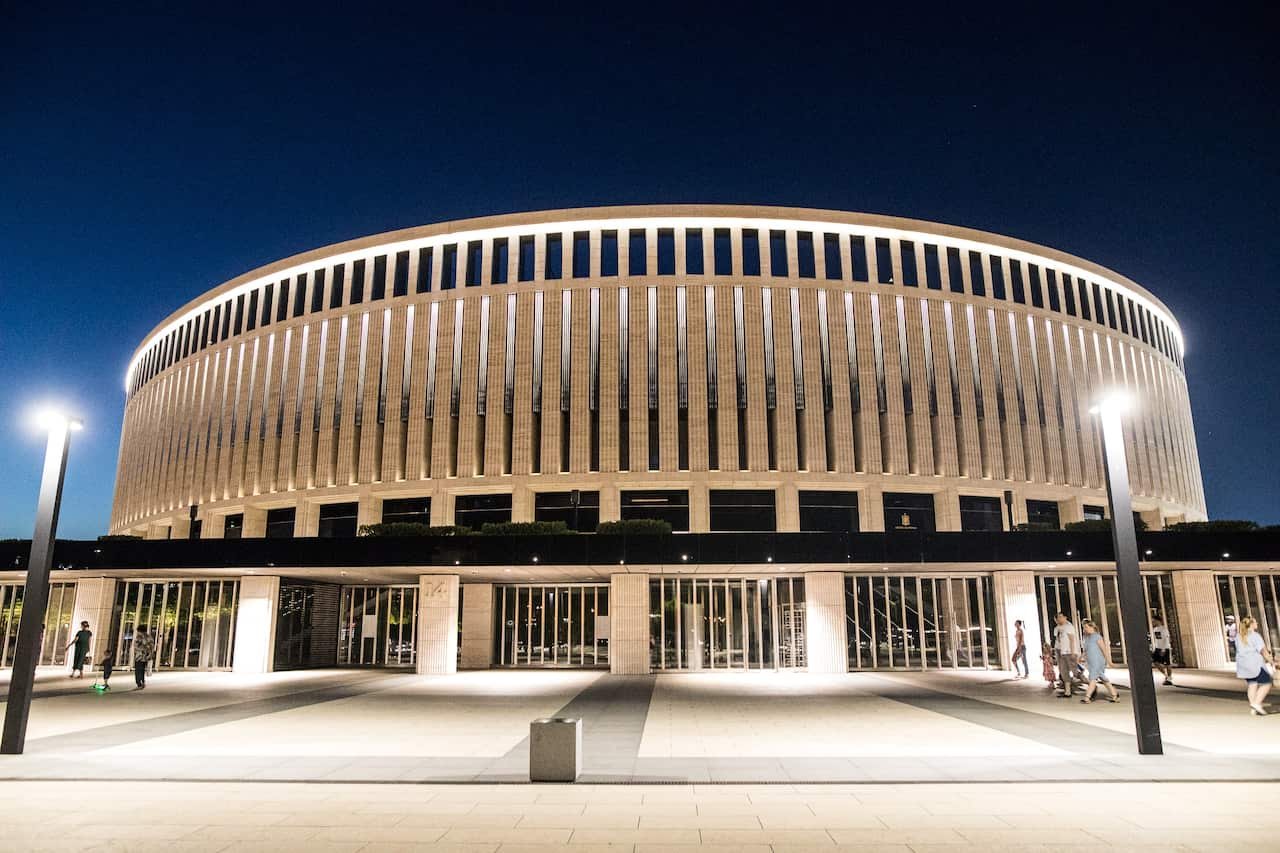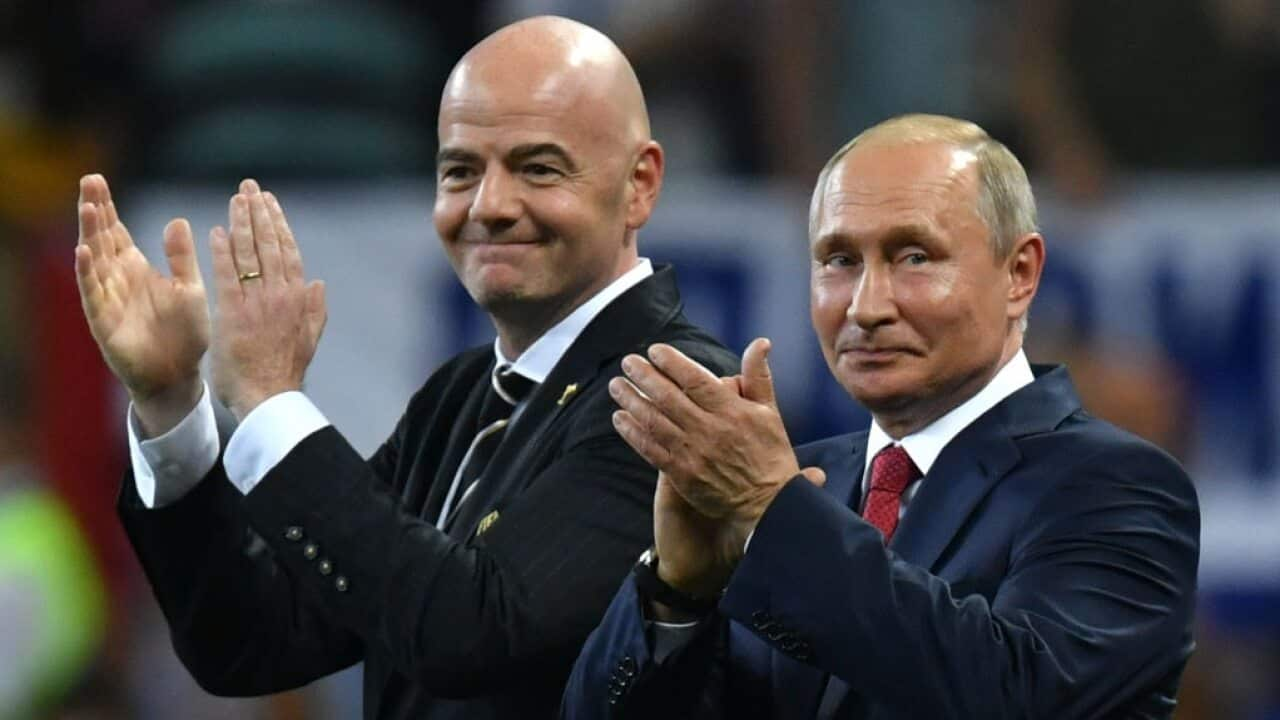It was rather fitting that the final of the 2018 FIFA World Cup was interrupted by a political protest from activists Pussy Riot.
For a tournament that has been shrouded by political controversy since it was awarded to Russia in December 2010, the past five weeks have been remarkably free of overt politics.
No mass protests, as occurred at the 2013 Confederations Cup in Brazil.
No boycotts, as have plagued past Olympics.
No significant international incidents – certainly no repeat of 2008, when the Russian-Georgian war began just as the Beijing Olympics were getting underway.
For a month, the hostile Russia of Western newspaper headlines was temporarily forgotten.
Russia’s pantomime villain costume was taken off, replaced by a warm welcome for the hundreds of thousands of foreign visitors to fly into the 11 host cities.
Moscow came alive with daily street parties. In Kazan, the main pedestrian walkway was packed day and night with locals and foreigners having a good time together.
In Kazan, the main pedestrian walkway was packed day and night with locals and foreigners having a good time together.

In Samara, the city’s famous brewery was overflowing with a multi-national selection of visitors.
Across the country, fans were delighted by the hospitality of locals, the quality of the craft beer and the variety of delicious cuisine.
The Russia that annexed Crimea, supports Syrian despot Bashar al-Assad and continues to fight a shadow war in eastern Ukraine, all while the country’s democratic deficit widens under President Vladimir Putin, exited stage left.
But the show was briefly halted at the 51-minute mark of Sunday’s final, when four pitch invaders hurled themselves onto the field of play.
Pussy Riot’s demands, announced on its Facebook page, were a reminder that the positive World Cup façade is just that.
Among the demands, a call for political prisoners to be freed, for protests to be left unmolested by heavy-handed police and for greater political competition to be allowed.
Putin won the March presidential election with 77 per cent of the vote, after the primary opposition figure was barred from running on spurious grounds.
All of which prompts the question: what will Russia’s hosting of the World Cup mean in the longer term?
Now that the party is over, are Russians waking up to a painful hangover – or could FIFA’s flagship gathering make a real, sustained difference? The international legacy of the tournament will likely be determined by subsequent events.
The international legacy of the tournament will likely be determined by subsequent events.

Barring any major incidents, the positive glow surrounding Russia following the World Cup may well linger.
But the same was said after the 2014 Winter Olympics in Sochi.
While that event was not quite as successful – hampered as it was by a number of mishaps – assessments were broadly positive.
That was until Russia annexed Crimea less than a month later, and Russia’s state-sponsored doping programme was uncovered.
Absent any analogous developments, the Kremlin’s $15 billion expenditure on the tournament could prove a worthwhile public relations investment.
Russian tourism officials are hopeful that the World Cup will boost foreign visitor numbers, forecasting a 15 per cent increase over the next year.
Certainly, after the positive experiences of fans, it is not far-fetched to expect that vibrant Moscow, cultural Saint Petersburg and distinct Kazan might become hotter attractions.
Whether tourists are enticed to tiny Saransk with its population of 300,000 or industrial Nizhny Novgorod seems less certain.
Domestically, the World Cup’s residual benefits are also questionable.
The tournament was well-received by locals, no doubt helped by the Russian national team’s unexpectedly strong performances.
I met people in Kazan in mid-June with no interest in football and grumbled about the inconveniences the tournament had imposed upon then.
By mid-July, they were at the fan-zone for the final – complete converts to the church of the beautiful game.
But while President Putin may have hoped for a popularity boost, an opinion poll released recently by a state-funded research agency indicated a 14 per cent slide in approval since March, to 63 per cent.
On the day the World Cup kicked off, the Russian government announced major reforms to Russia’s pension system which will see a significant increase in the retirement age.
This precipitated nationwide rallies, albeit not in World Cup host cities – protests were prohibited in those for the duration of the tournament.
Russians are exasperated at the prospect of being forced to work significantly later into their lives as $15 billion is spent on a single sporting event.
Whether or not that change is implemented, the long-term benefit of the expenditure remains questionable.
All 11 host cities now have arenas with 40,000 seats or more, despite five not having a team in the Russian Premier League. In some cities, there has been talk that brand new hotels constructed to meet FIFA requirements will be decommissioned; in Rostov-on-Don, a half-built Sheraton remains incomplete and unlikely to be finished, let alone opened for business.
In some cities, there has been talk that brand new hotels constructed to meet FIFA requirements will be decommissioned; in Rostov-on-Don, a half-built Sheraton remains incomplete and unlikely to be finished, let alone opened for business.

Such legacy issues are hardly new – similar problems have plagued Brazil and South Africa.
But that does not make them any less grating for locals.
In each of the six host cities I visited, there was a real sense of optimism throughout the tournament.
The World Cup, Russians told me, was showing the “real Russia” to the world.
Just what that “real Russia” looks like after the FIFA circus has left town remains to be seen.










